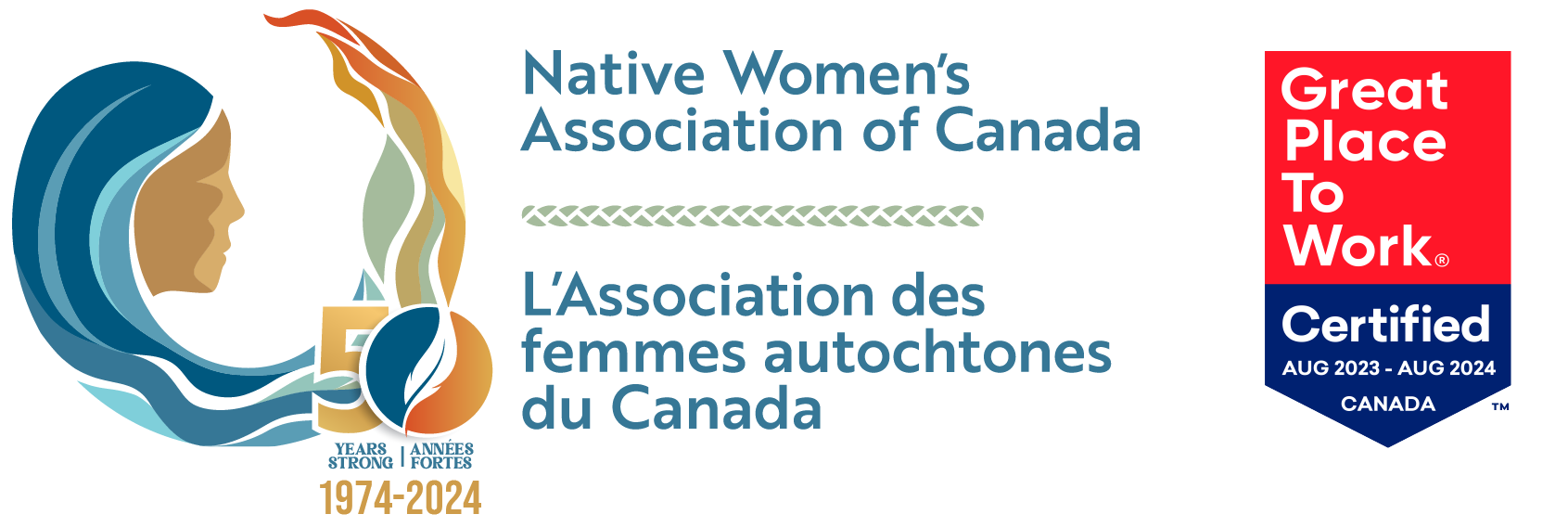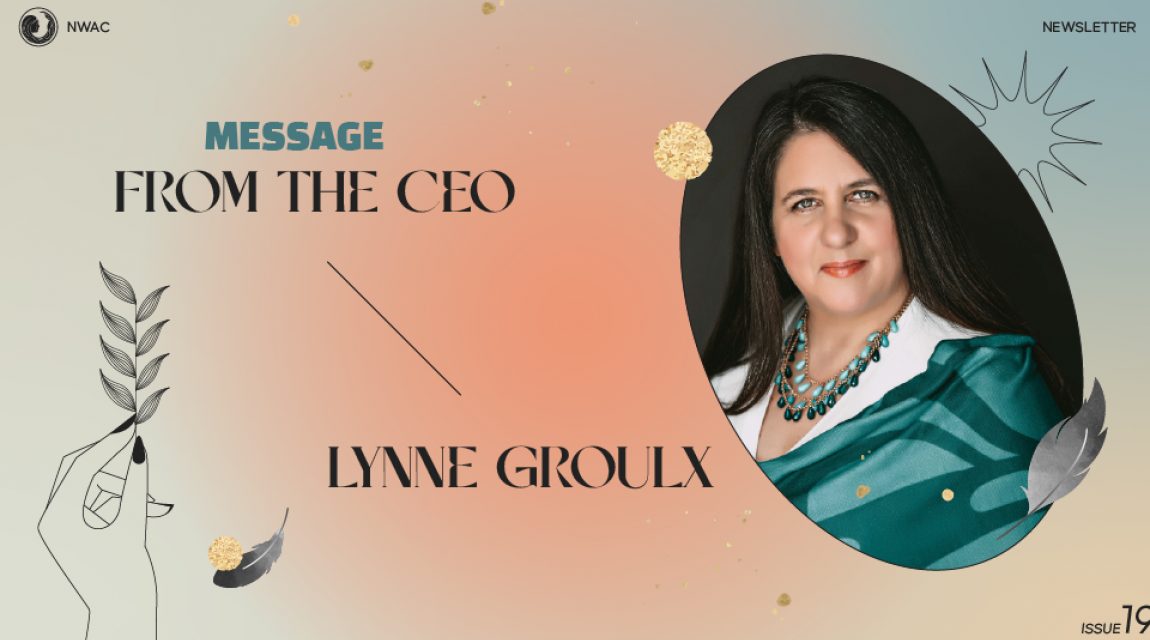The National Inquiry into Missing and Murdered Indigenous Women and Girls called the crisis that has devastated Indigenous communities across the country a cultural genocide. It issued 231 individual Calls for Justice that are designed to redress the wrongs wrought by colonial and patriarchal policies and practices. Colonialism displaced Indigenous women from their traditional roles in communities and governance and diminished their status in society, leaving them vulnerable to violence.
As the association that represents Indigenous women, girls, Two-Spirit, transgender, and gender-diverse+ (WG2STGD+) people across this country, one of our main focuses has been, and continues to be, the violence prevention and promoting the safety of Indigenous WG2STGD+ people. In this issue of Shining the Spotlight, you’re read about our continuing work in this area, such as the partnerships and engagements that are taking place on matters related to this file.
For example, our MMIWG2S+ team is engaging with the RCMP and the federal MMIWG Secretariat on the Red Dress Alert system and other mechanisms for reporting missing Indigenous WG2STGD+ people. Everyone has a role to play in addressing gender inequality, promoting safety and security for all, and building trust and accountability.
To this end, the Native Women’s Association of Canada (NWAC) released our own action plan, titled Our Calls, Our Action. The 66 concrete actions in our plan—which we aim to complete—address violence against Indigenous WG2STGD+ people and promote their safety and security.
Healing and wellness is a big part of the safety piece. In addition to healing lodges, Indigenous-led healing and wellness initiatives such as healing lodges are critical. Our Executive Policy team is researching initiatives that are land-based and Elder-led—gathering information on the transformative power of integrating Indigenous perspectives into mainstream health care.
When it comes to talking about wellness, NWAC continues to work hard on the overincarceration of Indigenous women file. It’s a human rights travesty that Indigenous women make up more than half of all federal prison populations: the women who are incarcerated face trauma, poverty, abuse, and a host of injustices—like a lack of access to supportive services—that trample on their dignity and negatively impact their health. A story in this issue brings you up to date on our advocacy work in this important area. (And if you haven’t already done so, I urge you to read our latest issue of Kci-Niwesq, whose theme is injustice.)
Our Health team is working on a project on medical assistance in dying and its impact on the people that NWAC represents. The overall goal is to promote culturally competent approaches to end-of-life care for Indigenous WG2STGD+ individuals.
Economic empowerment was identified by the National Inquiry as a key driver for addressing the wrongs that Indigenous women have faced as a result of colonialism. And so, as usual, we bring you a fulsome update on the Community Workforce Development Program, #BeTheDrum, and POETA. They are very different pathways but they all share the same goal—to help Indigenous WG2STGD+ individuals achieve career success.
We bring you a story about our Going Global initiative, which is aimed at enhancing the social, economic, cultural, and political well-being of Indigenous WG2STGD+ people worldwide. We’re undertaking cultural exchanges, holding “fireside chats” on trade and export opportunities, and participating in government discussions with organizations dedicated to women and gender equality.
Last but not least, NWAC was ably represented at COP28 in Dubai, which presented multiple opportunities to meet with delegates, including the Canadian Ambassador of Climate Change and the Minister of Environment and Climate Change; take part in an Indigenous caucus; and help open the Canadian and Indigenous pavilions. Our story takes you behind the scenes at this major international event.

